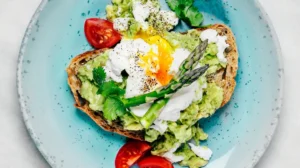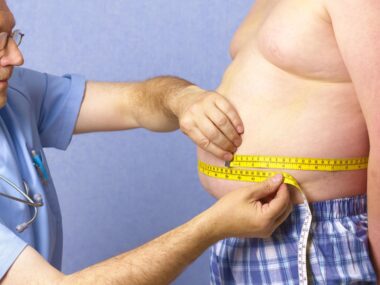Proper nutrition is a cornerstone of effective training. Whether you’re a seasoned athlete or a gym newbie, what you eat before and after your workout can significantly impact your performance, recovery, and overall progress. This guide delves into the essentials of gym nutrition, focusing on pre- and post-workout meals to help you optimize your fitness journey.

The Importance of Pre-Workout Nutrition
Fueling Your Workout
Pre-workout nutrition provides the energy your body needs to perform at its best. Consuming the right nutrients before exercising ensures you have enough fuel to sustain your workout, whether it’s lifting weights, running, or any other form of exercise.
Enhancing Performance
The right pre-workout meal can improve your performance by increasing stamina, strength, and endurance. Carbohydrates are particularly important as they provide quick energy, while proteins help with muscle support.
Preventing Muscle Breakdown
Consuming protein before a workout helps to reduce muscle breakdown. Amino acids from proteins are available to your muscles during exercise, which can minimize damage and promote quicker recovery.
Timing Your Pre-Workout Meal
Timing your pre-workout meal is crucial for maximizing its benefits. Ideally, you should eat a balanced meal containing carbohydrates, proteins, and fats 2-3 hours before your workout. If you need a snack closer to your workout, aim for something light and easily digestible 30-60 minutes beforehand.
What to Eat Before a Workout
Carbohydrates
Carbohydrates are your body’s primary source of energy. Consuming carbs before a workout helps maintain blood glucose levels and replenish muscle glycogen stores. Good pre-workout carbohydrate sources include:
- Whole grains (brown rice, quinoa, oatmeal)
- Fruits (bananas, berries, apples)
- Vegetables (sweet potatoes, leafy greens)
Proteins
Proteins are essential for muscle repair and growth. Eating protein before a workout provides your muscles with amino acids, reducing muscle breakdown and promoting recovery. Good pre-workout protein sources include:
- Lean meats (chicken, turkey, fish)
- Dairy (Greek yogurt, cottage cheese)
- Plant-based proteins (tofu, legumes, nuts)
Fats
Fats provide a slow and steady source of energy. Including healthy fats in your pre-workout meal can help sustain energy levels during longer workouts. Good sources of healthy fats include:
- Avocados
- Nuts and seeds
- Olive oil
Sample Pre-Workout Meals
Here are some examples of balanced pre-workout meals:
- Grilled chicken with brown rice and steamed vegetables
- Greek yogurt with berries and a sprinkle of granola
- Oatmeal topped with banana slices and a drizzle of honey
- Whole grain toast with almond butter and apple slices
- Smoothie made with spinach, banana, protein powder, and almond milk
The Importance of Post-Workout Nutrition
Promoting Muscle Recovery
Post-workout nutrition is critical for recovery. After exercising, your muscles need nutrients to repair and grow. Consuming the right nutrients soon after your workout can enhance muscle protein synthesis and reduce muscle soreness.
Replenishing Glycogen Stores
During exercise, your body depletes its glycogen stores. Eating carbohydrates after a workout helps to replenish these stores, ensuring you have energy for your next session.
Reducing Muscle Soreness
Proteins and carbohydrates play a key role in reducing muscle soreness and inflammation. Consuming these nutrients after a workout can help to speed up recovery and minimize discomfort.
Timing Your Post-Workout Meal
To maximize recovery, aim to eat a balanced meal within 30-60 minutes after your workout. This window is often referred to as the “anabolic window,” during which your body is most efficient at absorbing and utilizing nutrients.
What to Eat After a Workout
Proteins
Protein is essential for muscle repair and growth. Consuming high-quality protein after a workout provides your body with the necessary amino acids to rebuild muscle tissue. Good post-workout protein sources include:
- Lean meats (chicken, turkey, fish)
- Eggs
- Dairy (milk, cheese, yogurt)
- Plant-based proteins (lentils, chickpeas, quinoa)
Carbohydrates
Carbohydrates are crucial for replenishing glycogen stores. Combining carbs with protein in your post-workout meal can enhance glycogen resynthesis and muscle recovery. Good post-workout carbohydrate sources include:
- Whole grains (brown rice, quinoa, oatmeal)
- Starchy vegetables (sweet potatoes, corn)
- Fruits (bananas, berries, oranges)
Fats
While fats are not as critical immediately after a workout, including some healthy fats in your post-workout meal can help with overall nutrient absorption and provide a sustained source of energy. Good sources of healthy fats include:
- Avocados
- Nuts and seeds
- Fatty fish (salmon, mackerel)
Sample Post-Workout Meals
Here are some examples of balanced post-workout meals:
- Grilled salmon with quinoa and steamed broccoli
- Scrambled eggs with spinach and whole grain toast
- Protein shake made with whey protein, banana, and almond milk
- Chicken stir-fry with mixed vegetables and brown rice
- Cottage cheese with pineapple chunks and a handful of almonds
Hydration: An Essential Component
Pre-Workout Hydration
Staying hydrated is vital for optimal performance. Dehydration can lead to fatigue, reduced endurance, and impaired concentration. Ensure you’re well-hydrated before starting your workout by drinking water throughout the day and consuming about 16-20 ounces of water 2-3 hours before exercising.
Post-Workout Hydration
Rehydration is equally important after a workout. Drinking water helps to replenish fluids lost through sweat and supports the recovery process. Aim to drink 16-24 ounces of water for every pound lost during exercise. You can also include electrolyte-rich beverages if you’ve had an intense or prolonged workout.
Supplements: Enhancing Your Nutrition
Protein Powders
Protein powders, such as whey or plant-based options, are convenient and effective ways to meet your protein needs. They can be easily added to shakes, smoothies, or meals to boost protein intake.
BCAAs (Branched-Chain Amino Acids)
BCAAs, including leucine, isoleucine, and valine, are essential amino acids that play a crucial role in muscle protein synthesis. Supplementing with BCAAs before or after workouts can help reduce muscle soreness and enhance recovery.
Creatine
Creatine is a popular supplement known for its ability to enhance strength and power. It helps to replenish ATP (adenosine triphosphate) stores, which are essential for high-intensity exercise. Taking creatine post-workout can improve muscle recovery and support muscle growth.
Beta-Alanine
Beta-alanine is an amino acid that helps to buffer acid in muscles, reducing fatigue and improving endurance. It can be particularly beneficial for high-intensity and endurance workouts.
Electrolytes
Electrolyte supplements help to replenish essential minerals lost through sweat, such as sodium, potassium, and magnesium. They are especially useful for prolonged or intense workouts to prevent dehydration and muscle cramps.
Customizing Your Nutrition Plan
Individual Needs
Everyone’s nutritional needs are different, and it’s essential to tailor your pre- and post-workout nutrition to your specific goals, body type, and activity level. Consider factors such as your age, gender, weight, and workout intensity when planning your meals.
Consulting a Professional
Working with a registered dietitian or nutritionist can help you develop a personalized nutrition plan that aligns with your fitness goals. They can provide expert guidance on macronutrient ratios, portion sizes, and meal timing to optimize your performance and recovery.
Listening to Your Body
Pay attention to how your body responds to different foods and meal timings. Everyone’s digestion and energy levels vary, so it’s important to find what works best for you. Adjust your nutrition plan based on your experiences and feedback from your body.
Practical Tips for Busy Schedules
Meal Prep
Meal prepping can save time and ensure you have nutritious meals ready to go. Set aside a day each week to prepare and portion out your pre- and post-workout meals. This practice can help you stay consistent with your nutrition plan, even on busy days.
Portable Snacks
Keep portable snacks on hand for quick and easy pre- or post-workout nutrition. Options like protein bars, fruit, nuts, and yogurt are convenient and can be carried with you wherever you go.
Smoothies and Shakes
Smoothies and shakes are versatile and quick options for pre- and post-workout nutrition. They can be packed with essential nutrients and are easy to consume on the go. Experiment with different ingredients to find combinations you enjoy.
Staying Consistent
Consistency is key to seeing results. Stick to your nutrition plan as closely as possible, but also be flexible and forgiving with yourself. Life can be unpredictable, and it’s important to adapt without getting discouraged.
Conclusion
Proper pre- and post-workout nutrition is essential for enhancing performance, promoting recovery, and achieving your fitness goals. By fueling your body with the right nutrients at the right times, you can maximize your workouts and support your overall health. Whether you’re consuming whole foods or supplementing your diet, the key is to find a balanced approach that works for you. Stay hydrated, listen to your body, and stay consistent with your nutrition plan. With these strategies, you’ll be well on your way to reaching your fitness potential.










